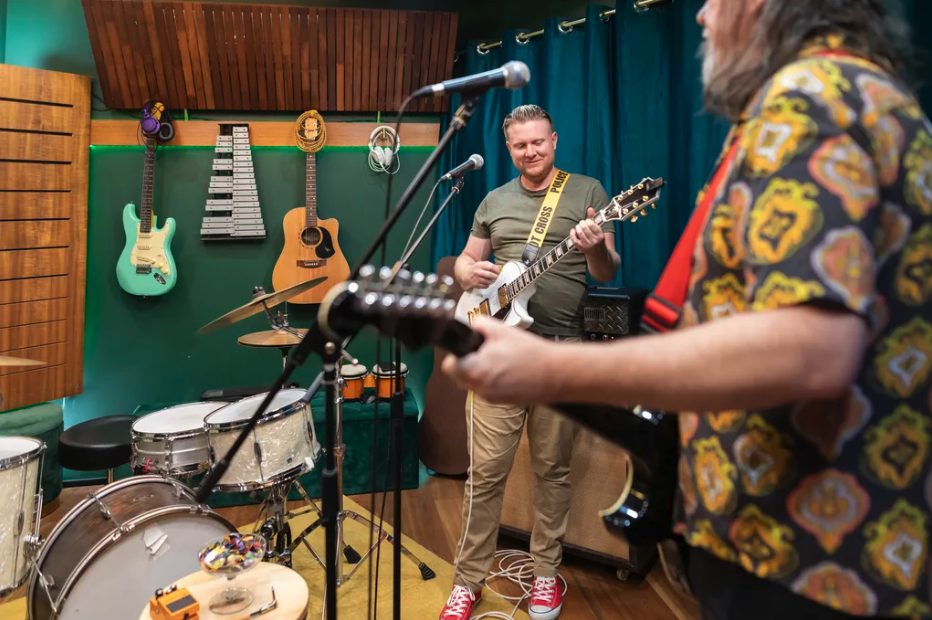Get extra cash in retirement to do what you love.
By Maurie Backman | Read Original Post

A funny thing happens to people when they enter retirement. Even if they’ve saved well for that stage of life and have plenty of money to go around, many retirees worry about depleting their nest eggs in their lifetime. In a recent Allianz Life survey, 64% of Americans cited running out of money as something that concerns them more than death.
Because so many retirees worry about not having enough money, they often hesitate to spend it. And that can easily lead to boredom.
That’s why monetizing a hobby can be a helpful thing for retirees. And it could also explain why 23% of Americans aged 60 to 78 have a side hustle, according to Bankrate.
Making money from a hobby offers the dual benefits of staying busy doing something you enjoy and boosting retirement income. If you’re hesitant to pull $2,000 from your nest egg to take a trip, you may be more willing to do so if you can pocket that money with your hobby. For example, you might be able to earn that $2,000 by getting paid to play guitar at restaurants, selling artwork you create, or designing custom wedding invitations, which solves a problem while giving you something to do with your time.
But while the benefits of monetizing a hobby in retirement are clear, the drawbacks may not be as obvious. And it’s important to understand the pitfalls you might encounter.
The math may not work
There’s a difference between spending money on a hobby for your own enjoyment versus spending money on a hobby that’s meant to be an income source. If your goal is to simply stay busy, and you take the attitude that any income you earn is just gravy, then there’s no problem with spending a few hundred dollars a month to do something you love.
The problem, though, is that you might sink additional funds into your hobby beyond what your budget would normally allow for in the hopes of monetizing it. And you may find that in that case, the numbers don’t add up.
Imagine you enjoy creating handmade chocolates in your kitchen and would normally spend $15 a week on ingredients for that activity. If you’re focused on monetizing that hobby, you might increase your ingredient spending to $40. But if you’re only able to sell your goodies for $20 in total, you’re now spending extra with no financial upside.
There’s also the risk of getting carried away with the gear side of your hobby before the business side can catch up. You don’t want to be that guy who has a music studio in his basement and ten guitars, but doesn’t yet have the confidence or contacts to get a gig.
The income may be inconsistent
If you’re feeling confident about your retirement finances and the extra money from your hobby is simply a nice thing to have, then you might as well pursue it, says Michael Boggiano, Managing Partner at Wealthcare Financial. The problem, he cautions, is that hobby income can be very inconsistent. So if it’s money you need, a traditional part-time job may be a better choice.
“If you’re relying on the income to make ends meet, having a Plan B in place is crucial,” he says. “Hobby income often lacks benefits, stability, and predictability, so it’s important to ensure it fits into your broader retirement strategy.”
There may be onerous paperwork
When you’re making homemade jam or baked goods for fun, you don’t need to apply for a license to use your own kitchen. But when you decide to sell those goods to customers, whether via a website or by setting up a booth at farmers markets, there could be licensing requirements to follow, depending on your state’s rules. And those could get cumbersome.
Of course, there are plenty of hobbies you can monetize without needing a license. But if you dread the idea of having to fill out paperwork and follow strict rules, then you may run into issues with certain income-earning ventures.
The taxes could get complicated
The IRS has a way of getting its hands on all sorts of income — including money you make from a hobby. But that could introduce a world of unwanted complications during retirement.
Cary Carbonaro, Certified Financial Planner and author of Women and Wealth: A Playbook to Empower Clients and Unlock Their Fortune, says it’s important for retirees to understand the rules and tax implications of turning a hobby into an income source. She also warns that in addition to paying taxes on your income, you may be limited in your ability to deduct expenses related to your venture.
“If your business claims a loss for too many years, the IRS may classify your business as a hobby,” she explains. Once that happens, you won’t be allowed to deduct expenses or take losses for it on your tax return.
It could stop being fun
The nice thing about hobbies is that you’re not required to meet deadlines in the course of enjoying them. If you love to knit, for example, and you’re doing it for your own entertainment, there’s no pressure to finish that blanket or scarf by a certain deadline.
But if you’re monetizing your hobby, there’s suddenly the pressure to not only do well financially, but stick to customer deadlines. And that could be a huge turnoff.
As Boggiano warns, “If your monetized hobby becomes demanding, the joy can be quickly drained.”
To hobby or not to hobby?
If you have a hobby that naturally lends to earning an income during retirement, there’s nothing wrong with trying to monetize it. But if you don’t absolutely need an income boost, you may want to stop chasing the money and enjoy your hobby for what it is — a way to stay busy and fulfilled at a time when you may have lots of hours to occupy.




